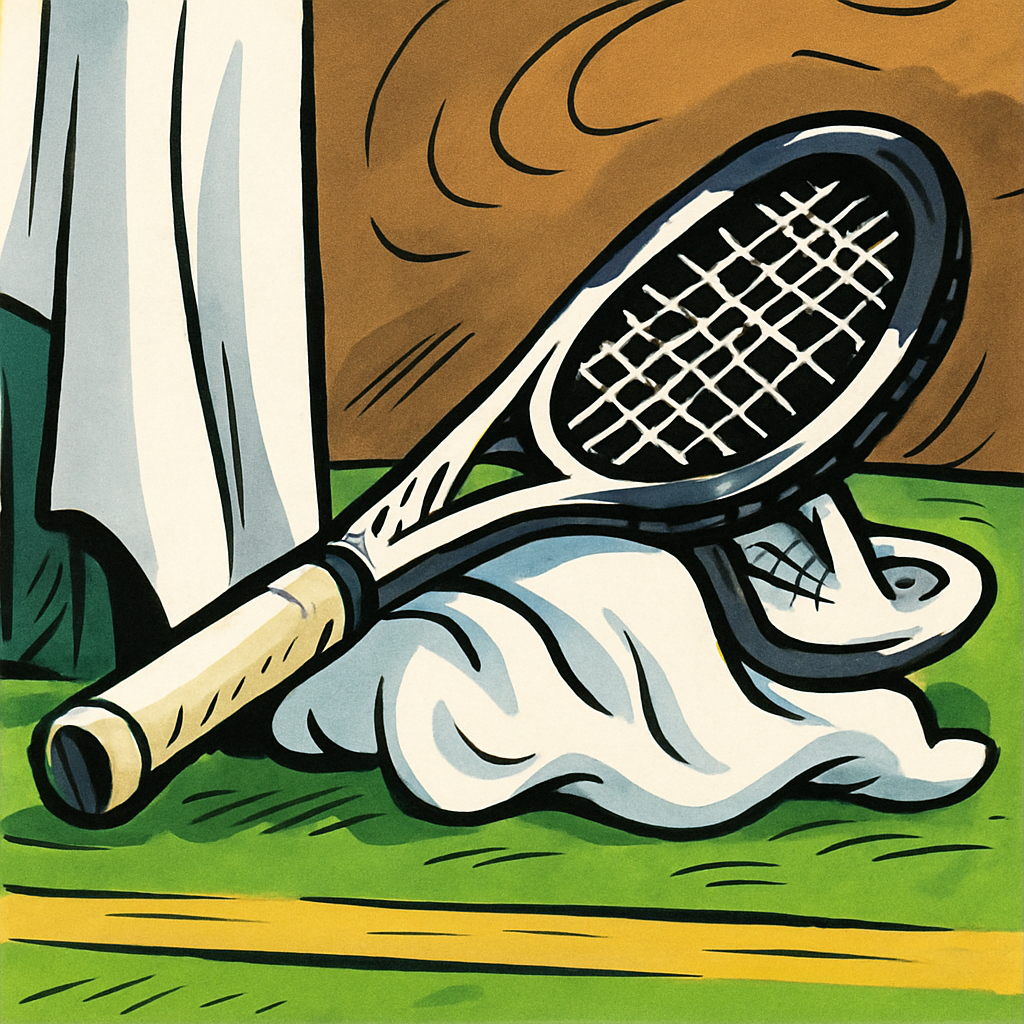A pioneering artificial intelligence tool deployed by the Association of Tennis Professionals (ATP) has successfully identified and blocked more than 162,000 instances of "severe" abusive content directed at players during its inaugural year of operation, marking a significant escalation in the sport's ongoing battle against online hate. The sophisticated system, developed in partnership with AI threat detection leader Signify Group, represents one of the most proactive measures taken by a global sports governing body to protect its athletes from digital harm.
The staggering figure was revealed in the ATP's first annual "Troll-Free Tennis" report, which detailed the tool's performance since its launch in early 2023. The AI operates by scanning millions of public comments, direct messages, and other digital interactions across major social media platforms, including X (formerly Twitter), Instagram, Facebook, and YouTube. Its primary focus is on identifying what it classifies as "severe" abuse, which includes death threats, targeted harassment, and hate speech based on race, nationality, or gender.
A Proactive Shield for Players
Unlike reactive moderation systems that rely on user reports, the ATP's AI tool functions as a proactive, always-on sentinel. It uses natural language processing and machine learning to analyze text in over 40 languages, understanding context, slang, and coded hate speech that often evades simpler keyword filters. When the system flags a severe threat, it doesn't just hide the comment; it automatically reports it to the respective social media platform for potential account suspension and, in the most extreme cases, alerts relevant law enforcement agencies.
Massimo Calvelli, ATP CEO, emphasized the non-negotiable nature of player safety in the digital age. "Our players should be celebrated for their extraordinary skill and dedication, not subjected to vile abuse simply for participating in the sport they love. This technology provides a critical layer of protection, allowing them to engage with their fans without fear." The initiative was born from player-led concerns, with several high-profile stars speaking out about the mental toll of relentless online trolling.
The Human and Technological Partnership
The system is not fully automated; it operates with a human-in-the-loop model. A dedicated team of human moderators, trained in cultural nuances and the specific dynamics of tennis fandom, reviews the AI's flagged content to eliminate false positives and ensure accuracy. This hybrid approach prevents the accidental silencing of legitimate criticism or passionate fan debate, focusing solely on genuinely harmful material. The moderators also provide players with regular, anonymized reports, offering insights into the volume and nature of the abuse being deflected.
The types of severe abuse identified break down into several alarming categories:
- Death threats and incitement to violence: Comprising 23% of the blocked content.
- Racist and xenophobic abuse: Particularly prevalent after high-profile matches between players of different nationalities, accounting for 31%.
- Sexist and misogynistic commentary: A significant portion aimed at female athletes and family members of players.
- Sustained targeted harassment campaigns: Often orchestrated by gambling-related accounts after an unexpected loss.
Jonathan Hirshler, CEO of Signify Group, explained the unique challenge of protecting athletes. "Tennis players are uniquely vulnerable. They are global individual athletes with high profiles, and matches often evoke strong nationalistic sentiments. The abuse is frequently tied to match outcomes, betting losses, or simply deep-seated prejudice. Our technology is built to understand these specific triggers and protect players in near real-time."
The Wider Context of Online Safety in Sports
The ATP's investment in this technology places it at the forefront of a growing movement in professional sports. Other organizations, including England's Premier League and the International Olympic Committee, have launched similar programs. The move reflects a broader acknowledgment that digital abuse has tangible real-world consequences, impacting athletes' mental health, performance, and longevity in the sport. Studies have shown a direct correlation between online vitriol and increased anxiety and depression among professional athletes.
The initiative has been widely praised by player associations. Ahmad Nassar, Executive Chairman of the ATP Player Advisory Council, stated, "This is a landmark step. For too long, online abuse was seen as an unavoidable part of the job. Now, we are finally saying 'enough is enough' and providing concrete tools to fight back. It sends a powerful message that hate will not be tolerated in our sport."
Challenges and the Road Ahead
Despite its success, the fight is far from over. The AI constantly evolves to counter new tactics employed by trolls, such as using misspellings, coded language, and memes to circumvent detection. Furthermore, the tool is primarily effective on public forums; private direct messages and closed-group chats remain a more difficult challenge to address at scale. The ATP has stated that continued development, including exploring ways to tackle abuse in private digital spaces, is a top priority for the coming year.
The 162,000 blocked posts represent a fraction of the total toxic content identified. The system also flagged over half a million additional comments classified as "moderate" abuse, which were hidden from view but did not meet the threshold for severe threats. This data provides a sobering glimpse into the sheer volume of negativity that exists within online sports communities.
The program's first-year success has sparked conversations about making it a standard across other tennis bodies, including the WTA and the Grand Slam tournaments, to create a unified front against abuse. The ultimate goal is to foster a healthier online environment that respects competition and passion without descending into hatred and threats.
In conclusion, the ATP's AI tool is more than just a content filter; it is a statement of values. By leveraging cutting-edge technology to protect its members, the association is setting a new standard for duty of care in professional sports. While the数字 battlefield against online hate is ever-changing, the first-year results prove that a determined, technologically advanced approach can make a significant difference, ensuring the focus remains on the game, not the game's worst detractors.

